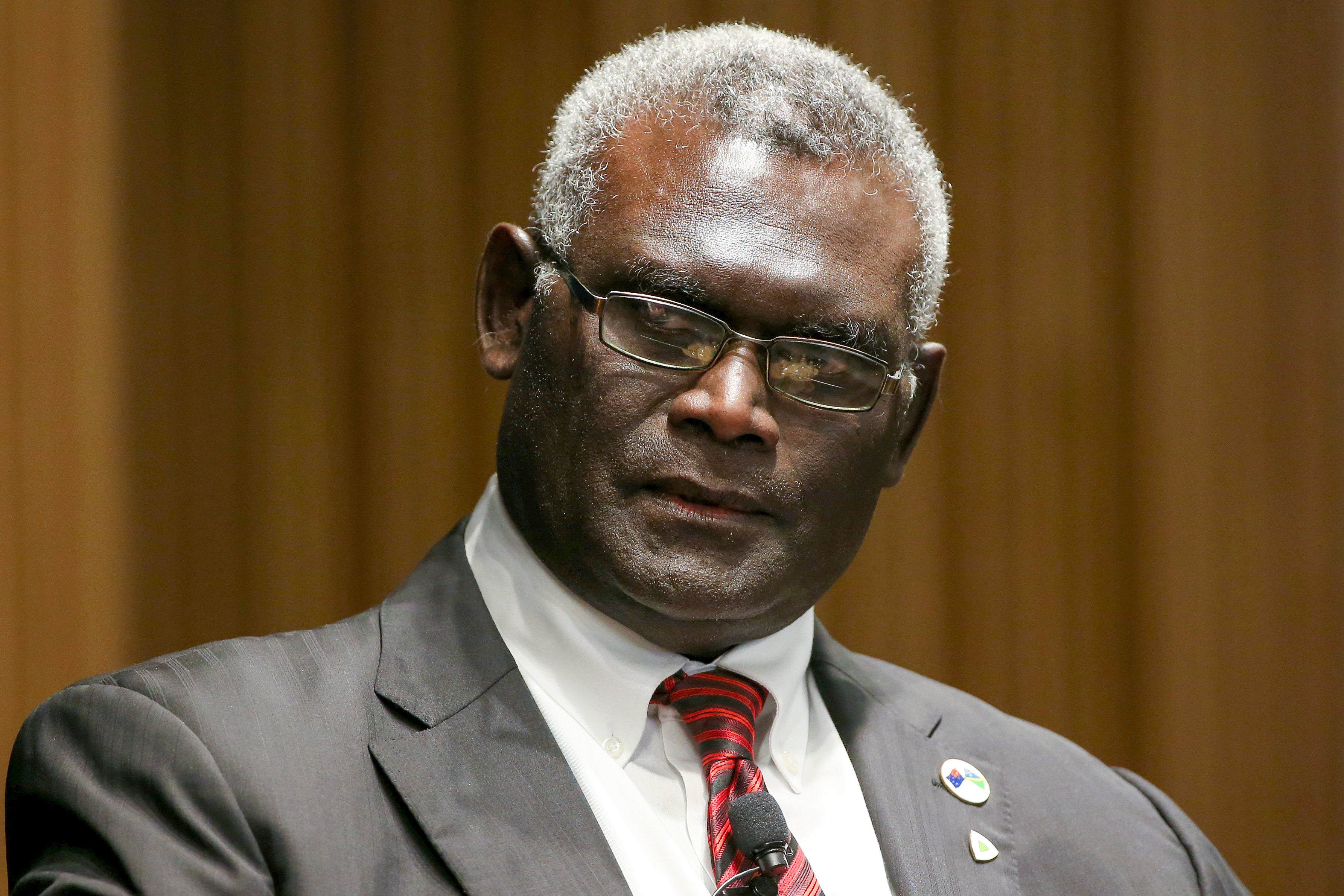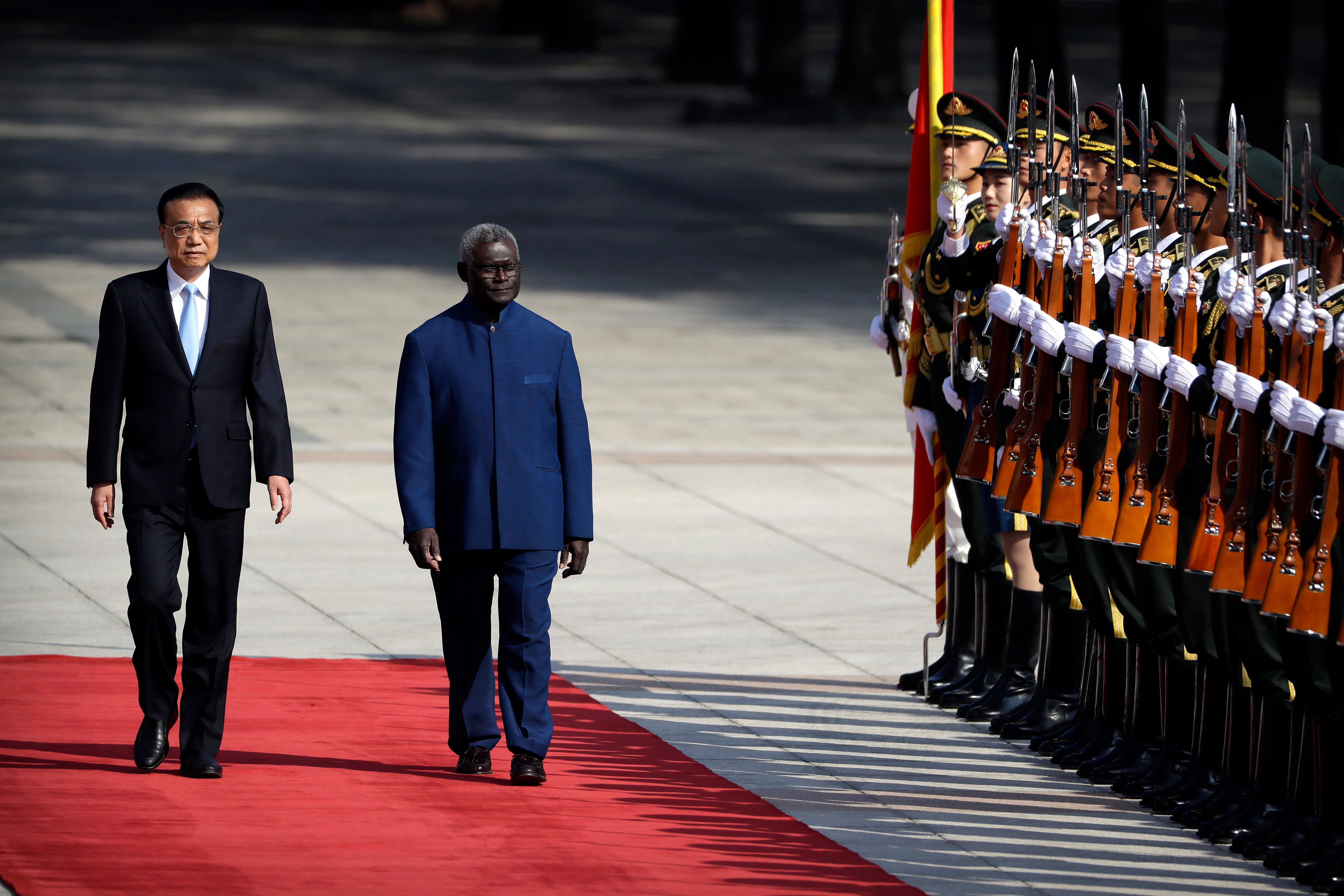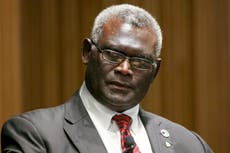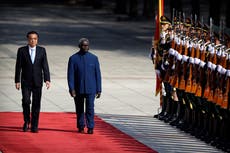Why has the Solomon Islands blocked foreign ships from entering its ports and is China behind it?
Moves comes after US Coast Guard and Royal Navy vessels refused entry

The Solomon Islands has moved to temporarily stop all foreign naval vessels from using its waters, apparently as part of a bid to shore up control over its exclusive economic zones.
Manesseh Sogavare, prime minister of the South Pacific archipelago, said on Tuesday that the suspension would be in place until the adoption of a new approval process for ships seeking access to its ports was agreed in the wake of the Oliver Henry and HMS Spey – vessels belonging to the US Coast Guard and Royal Navy respectively – being turned away last week when they made refuelling requests.
“We have requested our partners to give us time to review, and put in place our new processes, before sending further requests for military vessels to enter the country,” Mr Sogavare said in a statement to the Reuters news agency. “These will universally apply to all visiting naval vessels.”
He added that the Solomon Islands has had “unfortunate experiences of foreign naval vessels entering the country’s waters during the course of the year without diplomatic clearance granted”, saying the process review had been undertaken to boost its powers to police its own ports.
While a change of administrative protocol might not immediately strike the West as cause for concern, relations between the Solomon Islands, the US and its allies have become more tense since the country struck a security pact with China in late March.
The pact allows Beijing to send police and military personnel to the Solomon Islands “to assist in maintaining social order” following riots last November while also opening the door for Chinese warships to weigh anchor there for “logistical replenishment”, giving rise to worries that a Chinese naval base could be established on the doorstep of Australia and New Zealand.
Mr Sogavare, a 67-year-old karate black belt in his fourth stint as premier, has insisted Honiara will not allow such a base to be built on its territory but China’s interest in the country, which already extends to construction, telecommunications and mining, continues to grow.
Australia, which signed its own security pact with the Solomon Islands in 2017, had urged the country not to deal with Beijing and its international development minister, Zed Seselja, earlier this year pronounced himself “deeply disappointed” that the deal had gone ahead and expressed concern about “the lack of transparency with which this agreement has been developed, noting its potential to undermine stability in our region”.
US State Department spokesman Ned Price likewise expressed unease at the prospect of China securing a foothold on the islands, the site of several thousand American deaths during the Guadalcanal campaign in the Second World War.

Mr Sogavare responded by insisting the deal was one “based on mutual respect for sovereignty and in compliance with domestic and international law” and that “we entered into an arrangement with China with our eyes wide open, guided by our national interests.”
When they sought permission to refuel last week, the Oliver Henry and HMS Spey had been on patrol for illegal fishing in the South Pacific, part of an initiative the US announced in July to crack down on the practice and to push back against China’s outsized and potentially malign influence.
Speaking on Monday, White House National Security Council spokesman John Kirby said it was regrettable that “we’ve seen the Chinese try to bully and coerce nations throughout the Indo-Pacific to do their bidding and to serve what they believe their selfish national security interests are, rather than the broader interests of a free and open Indo-Pacific”.
Mr Sogavare also raised eyebrows earlier this month when he accused the Solomon Islands Broadcasting Corporation of a “lack of ethics and professionalism” and reminded it that its duty is to “protect our people from lies and misinformation”, a rebuke that his political opposition warned could lead to censorship and encroaching authoritarianism.
Join our commenting forum
Join thought-provoking conversations, follow other Independent readers and see their replies
Comments


Bookmark popover
Removed from bookmarks